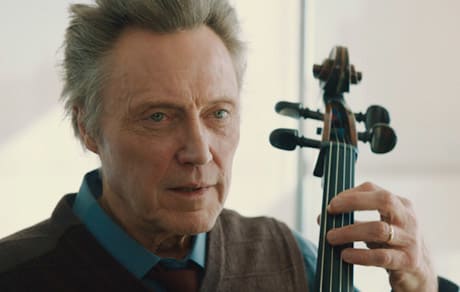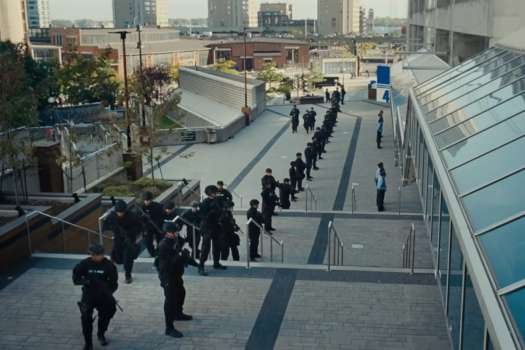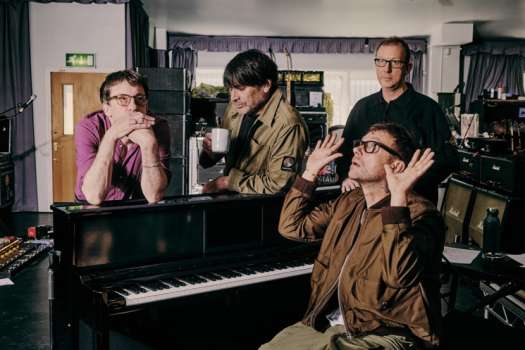Using Beethoven's complex and defiant "Opus 131" to mirror the emotional and professional breakdown of a highly lauded string quartet, Yaron Zilberman's A Late Quartet struggles to transcend that very apt metaphor. While it's a largely effective drama that smartly draws parallels between the bold urgency of one of history's greatest composers frantically challenging form in his twilight years and the tensions that arise from any intimate group of collaborators faced with confronting the impermanence of life, Zilberman's lack of commensurate cinematic artistry prevents the film from becoming much more than a thoughtful story with a handful of solid performances. After 25 years together, the Fuge Quartet are thrown into turmoil when their anchor and collective father figure, cellist Peter Mitchell (Christopher Walken, in one of the most understated performances of his later years), is diagnosed with Parkinson's. He handles the situation with greater maturity and dignity than the rest of the group, electing to look for a replacement while undergoing a treatment that will allow him to participate in one final performance so he can bow out gracefully. The rest of the members, married couple Robert (Philip Seymour Hoffman, doing his red-faced thing) and Juliette Gelbart (the dependable Catherine Keener), and arrogant perfectionist Daniel Lerner (Mark Ivanir), use the tumultuous circumstances to pick at old scabs and bring long festering discontent to the surface. Egos clash, pride is wounded and libidos flare. Robert and Daniel use their penises to duel for superiority, when their violins fail, while Juliette is met with passive-aggressive competitiveness by her and Robert's resentful daughter, Alexandra (Imogen Poots), who is a promising young violinist in her own right. It all gets rather melodramatic around the edges, but frequent academic interjections of music philosophy from Peter remind us that everyone is simply playing their part in the group dynamic of personalities engaged in a highly disciplined art form that can be as repressive as emotionally cathartic. Beyond beginning at the end, it's difficult to discern if the first-time fiction director made an attempt to arrange the movie to even loosely follow Beethoven's convention-flouting, seven-movement structure of the piece the quartet are famous for performing. Since it's not readily apparent in the work, some conversation on the topic would have made for an interesting special feature. Alas, the DVD is a bare-bones release, with French subtitles as the only option outside of just watching the movie. But as Peter points out part way through the film, sometimes it's more constructive to appreciate the transcendent moments, few as they may be, rather than to concentrate on counting faults.
(Mongrel Media)A Late Quartet
Yaron Zilberman

BY Scott A. GrayPublished Mar 15, 2013



